About Our Classes
Click here to download a pdf with Fall 2025 – Spring 2026 Classes.
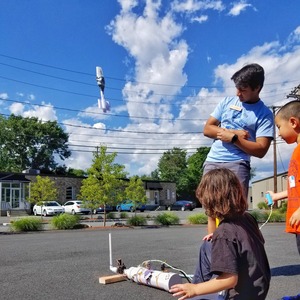 Most Einstein’s Workshop’s school year classes are taken through a school-year-long “concentration.” Concentrations meet on the same day and at the same time all school year. Most concentrations consist of four of our popular classes for a given interest and age range. This way, kids can enjoy a school year full of STEAM learning and families get a consistent schedule. Students may join concentrations throughout the academic year, usually at the quarter mark. If students want to try something new, they can switch to a different concentration at the end of each quarter. Some of our concentrations may be entered on a rolling basis throughout the school year.
Most Einstein’s Workshop’s school year classes are taken through a school-year-long “concentration.” Concentrations meet on the same day and at the same time all school year. Most concentrations consist of four of our popular classes for a given interest and age range. This way, kids can enjoy a school year full of STEAM learning and families get a consistent schedule. Students may join concentrations throughout the academic year, usually at the quarter mark. If students want to try something new, they can switch to a different concentration at the end of each quarter. Some of our concentrations may be entered on a rolling basis throughout the school year.
Concentrations
Learning in Minecraft
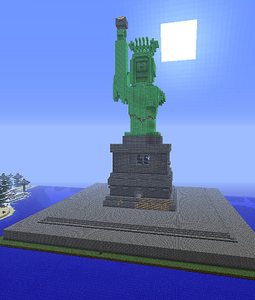 The kids think they’re playing a game, but we know they’re learning a lot! Starting in first grade, kids learn math, architecture, and roller coaster design, all inside Minecraft. By fourth grade, we’re teaching them medieval history, electronics, and computer programming. Minecraft is a great motivator! We’ve got kindergarten Minecraft fans covered too; they learn basic digital citizenship skills and how to use computers, including keyboard and mouse skills, in our Minecraft Adventures Club (see below).
The kids think they’re playing a game, but we know they’re learning a lot! Starting in first grade, kids learn math, architecture, and roller coaster design, all inside Minecraft. By fourth grade, we’re teaching them medieval history, electronics, and computer programming. Minecraft is a great motivator! We’ve got kindergarten Minecraft fans covered too; they learn basic digital citizenship skills and how to use computers, including keyboard and mouse skills, in our Minecraft Adventures Club (see below).
LEGO Engineering and Robotics (FIRST LEGO League)
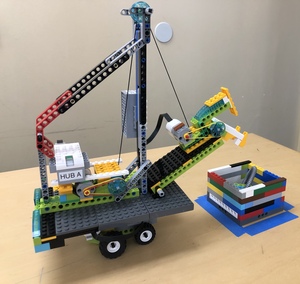 Einstein’s Workshop started as a FIRST LEGO League, so FLL will always be near and dear to us. Younger kids learn LEGO robotics using human power–cranks, levers, winches–and electronics–motors, sensors, and computers. Then they put their skills to work as part of a FIRST LEGO League Explore team. After the class is over, teams present at our Robotics Festival where they celebrate their hard work with family and friends. Often other teams from around Massachusetts participate in the same festival. Students end the year as Jr. LEGO Masters!
Einstein’s Workshop started as a FIRST LEGO League, so FLL will always be near and dear to us. Younger kids learn LEGO robotics using human power–cranks, levers, winches–and electronics–motors, sensors, and computers. Then they put their skills to work as part of a FIRST LEGO League Explore team. After the class is over, teams present at our Robotics Festival where they celebrate their hard work with family and friends. Often other teams from around Massachusetts participate in the same festival. Students end the year as Jr. LEGO Masters!
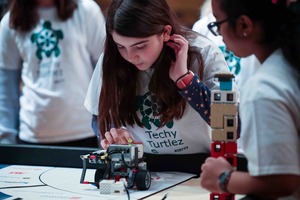 Fourth through eighth graders can join a FIRST LEGO League Challenge team for the first half of the school year, then try out Vex Robotics in the second half.
Fourth through eighth graders can join a FIRST LEGO League Challenge team for the first half of the school year, then try out Vex Robotics in the second half.
Hands-On STEAM / 3D-Print and Lasercut Design and Fabrication
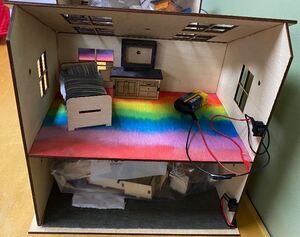 Hands on STEAM is a great introduction to Einstein’s Workshop and Maker culture. Younger students (grades K-1) get a taste of robotics, programming, science, engineering, and inventing. They learn what it’s like to be a mad scientist, treasure hunter, or inventor!
Hands on STEAM is a great introduction to Einstein’s Workshop and Maker culture. Younger students (grades K-1) get a taste of robotics, programming, science, engineering, and inventing. They learn what it’s like to be a mad scientist, treasure hunter, or inventor!
Slightly older students design and test things that fly, try advanced LEGO robotics, build handmade robots and upcycled machines, and learn various methods to use computers to make art.
Starting in grade 4, students transition to our 3D-Print and Lasercut Design and Fabrication courses where they learn how to design 3D-printable objects, design and make their own laser-cut glowboxes or other inventions, learn stop motion animation, electronics, computer art, and design their own board games.
By middle school, our students are learning arduino and other electronics in addition to refining their 3D design and other maker skills.
High schoolers take the learning further, even learning how to operate our 3D printers and our laser cutter.
Science and Engineering
 Does your child want to be Newton or have Fun with Things that Fly? Maybe they want to build handmade robots or invent their own unique creations! Then this is the concentration for them. Students learn about famous scientists past and present then perform experiments inspired by the scientists’ work.
Does your child want to be Newton or have Fun with Things that Fly? Maybe they want to build handmade robots or invent their own unique creations! Then this is the concentration for them. Students learn about famous scientists past and present then perform experiments inspired by the scientists’ work.
Older kids can learn about the solar system and develop their own space missions to explore it. They create their own space vehicle and the rockets to launch it! They learn by playing Kerbal Space Program (KSP), which NASA engineers say is a fantastic way to learn about the science of space exploration.
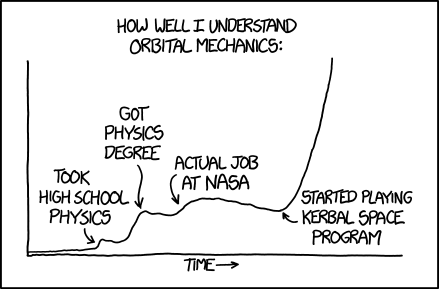
KSP realistically simulates the flight and behavior of the student’s space ship, providing an exciting and intuitive environment for learning about space exploration, from rocket design to control to orbital mechanics. Each stage of growth in our space program is informed by actual NASA missions, but what we create is limited only by our imagination — and the constraints of physics!
Clubs
Clubs are a social and supportive environment for kids to interact with their peers, tackle new challenges, and learn new skills. Clubs admit students throughout the year on a rolling basis. Email info@einsteinsworkshop.com if you wish to enter outside a quarter boundary, and we can arrange to prorate the cost of the quarter in progress.
Computer Programming
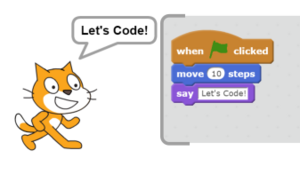 Children in grades 2-6 learn Scratch, a programming language developed at MIT that has caught on worldwide. They’ll start with the basics but will be telling their own stories or writing their own computer games, (yes, including platformers) by the end of the year. This concentration is appropriate for kids who already know some Scratch or who have never seen it before as these courses are very adaptable to the interests and skills of the students.
Children in grades 2-6 learn Scratch, a programming language developed at MIT that has caught on worldwide. They’ll start with the basics but will be telling their own stories or writing their own computer games, (yes, including platformers) by the end of the year. This concentration is appropriate for kids who already know some Scratch or who have never seen it before as these courses are very adaptable to the interests and skills of the students.
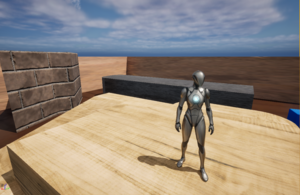
Older kids have multiple options to learn to code. Kids in grades 4-8 can learn how to design and build video game levels using Unreal Engine, a powerful open-source industry tool used to make many of today’s top games.
They can also learn Java to make Minecraft mods or their own animation and games.
Middle schoolers learn or improve fundamental programming techniques in Python. We follow students’ interests while offering a wide choice of projects for students to explore. Options include an introduction to AI, making games using Ren’Py or Pygame, preparing for the USA Computing Olympiad (USACO), creating a webserver, and more. Students develop coding skills and improve their ability to use algorithms and data structures to solve challenging problems.
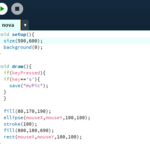 No prior programming experience is required for any of our programming classes. Those with prior experience are given more challenging exercises.
No prior programming experience is required for any of our programming classes. Those with prior experience are given more challenging exercises.
We include discussion of the ethics and controversy around AI and give guidance on appropriate use.
Math Club
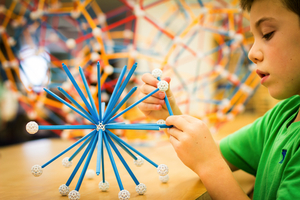 Click here to learn more about the Einstein’s Workshop Math Club (grades 4-8) and Math Club Jr. (grades 1-3).
Click here to learn more about the Einstein’s Workshop Math Club (grades 4-8) and Math Club Jr. (grades 1-3).
Minecraft Adventures
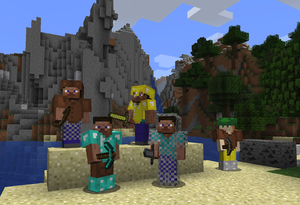 Join a group of like minded builders, crafters and adventurers playing Minecraft. Play on two servers, one in creative mode for unlimited building of epic structures and one in survival mode for the ultimate adventure. Students learn the meaning of good digital citizenship, teamwork, and how to use computers, including keyboard and mouse skills. Our seasoned staff guide students’ focus on building and growing as a group in this one-of-a-kind experience.
Join a group of like minded builders, crafters and adventurers playing Minecraft. Play on two servers, one in creative mode for unlimited building of epic structures and one in survival mode for the ultimate adventure. Students learn the meaning of good digital citizenship, teamwork, and how to use computers, including keyboard and mouse skills. Our seasoned staff guide students’ focus on building and growing as a group in this one-of-a-kind experience.
Dungeons & Dragons
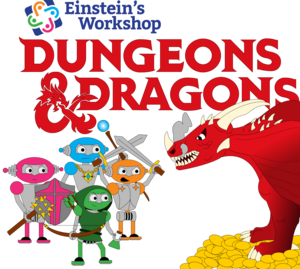 Embark on grand adventures! Explore long lost lands, battle perilous foes, and make new friends along the way. Dungeons and Dragons is great for developing imagination, creative problem solving, and teamwork.
Embark on grand adventures! Explore long lost lands, battle perilous foes, and make new friends along the way. Dungeons and Dragons is great for developing imagination, creative problem solving, and teamwork.
Chess Club
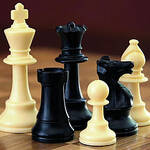 Learn to play chess and practice with your classmates. Learn fun facets of chess history.
Learn to play chess and practice with your classmates. Learn fun facets of chess history.
Click here to see a full list of all open classes.
Below is a calendar view of classes with rolling enrollment that can be joined immediately.
Frequently Asked Questions
Do any concentrations have prerequisites?
Only one of our concentrations, FIRST LEGO League Challenge and Vex IQ, has a prerequisite (for the first half of the school year only). Students must have taken our FLL Skills class or previously participated in an FLL Challenge team to join one of our FLL Challenge teams. The FLL Skills class is offered in Quarter 3, during February and April vacation camp, and several times during the Summer. Students with no prior experience may join this concentration once we move on to Vex Robotics at the start of Quarter 3.
How is tuition charged?
When you sign up for a year-long concentration, you may choose to pay for the entire year or in installments. For most concentrations, the first installment is charged on the day of enrollment to secure the student’s spot. Subsequent charges are made during Weeks 7, 15, and 23. After initial payment, the remaining installments are automatically charged to the credit card on file without further authorization. FIRST LEGO League Challenge teams meet for the first two quarters of the year so payment is required for both Q1 and Q2 when one joins one of our FLL Challenge teams. Similarly, our FIRST LEGO League Explore teams meet for the entire second half of the school year so payment for both Q3 and Q4 of the “Engineering and Robotics and FIRST LEGO League Explore” concentration is charged in Week 15.
You may withdraw before the second, third, or fourth quarter payments (except for our FIRST LEGO League teams) provided you notify Einstein’s Workshop, in writing, at least two weeks prior to the next payment date. You may request a transfer or credit provided you notify Einstein’s Workshop, in writing, at least one week before the start of the next quarter.
To place a drop, transfer, or credit request for your student, please contact info@einsteinsworkshop.com.
Why is the first half of the “FIRST LEGO League Challenge and Vex IQ” concentration sixteen weeks, not eight weeks like most other classes?
In the first half of FIRST LEGO League Challenge and Vex IQ, students join a FIRST LEGO League (FLL) Challenge team. The FLL Challenge season goes into December and can go longer if the team advances beyond the regional competition. For teams that don’t advance, we use the final few weeks to teach advanced robotics programming techniques that will serve the kids well in future FLL Challange competitions.
Why is the second half of the “Engineering and Robotics & FIRST LEGO League Explore” concentration sixteen weeks, not eight weeks like most other classes?
In Q3 & Q4, students in this concentration join one of our FLL Explore teams. The FLL Explore season lasts the full second half of the school year, culminating in our Robotics Festival which often draws over 100 participants and visitors from all over Massachusetts.
Why is the cost of joining an FLL team higher than other concentrations?
FLL Challenge teams meet for 1.5 hours/week with our coaches; most of our other classes meet for 1.25 hours/week. FLL Challenge teams are also invited to spend extra time at Einstein’s Workshop working with their teams. FLL team membership (both Explore and Challenge) includes FLL team registration fees, competition entry fees, access to the competition game board, and all robotics pieces necessary to compete. Einstein’s Workshop covers those charges for its teams. Parents will be asked to cover expenses related to competing beyond the state competition (travel, registration fees, etc.).
